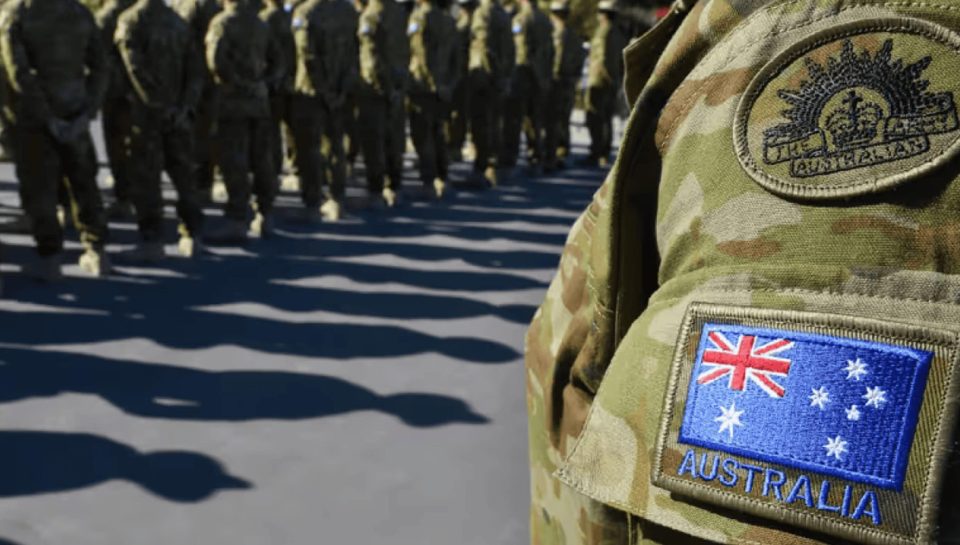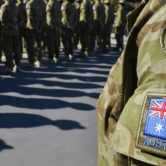Enough is Enough: A Decade of the ADF’s Systemic Failure Demands External Oversight

The 60 Minutes story, “Truth Bombs”, that aired last night (Sunday, 6 July 2025), will hopefully serve as the wake-up call the ADF desperately needs to make drastic changes to how reports of sexual abuse within its ranks are handled.
Watch the full 60 Minutes Interview here.
Since 2011, the Australian Defence Force (ADF) has been the subject of a series of inquiries, reviews and damning media reports into its handling of sexual abuse, assaults, and misconduct within its ranks. Despite a decade of investigations, reports, and policy reforms, survivors and advocates are still calling out the same failures: a culture of silence, protectionism, and a persistent reliance on internal mechanisms that too often fail the very people they are meant to protect.
The past decade has seen a parade of reviews – from the Broderick Review (2011) to the Defence Abuse Response Taskforce (DART, 2012-2016), the Defence Force Ombudsman (DFO) scheme (2016), the introduction of the Sensitive Investigation Management Protocol (SIMPRO) (2017), and later the Royal Commission into Defence and Veteran Suicide (ongoing since 2021).
The Defence Force Ombudsman (DFO) scheme was introduced in 2016 in response to DART to provide an external avenue for complaints relating to abuse in Defence. While the DFO has offered some relief and access to restorative engagement for survivors, its role remains limited. Reporting abuse, seeking reparation or restorative engagement closed with the scheme on 30 June 2022. After this date, survivors could no longer access the abuse-specific program but can still make complaints to the Commonwealth Ombudsman (of which the DFO is a function). It does not investigate current allegations of criminal misconduct, and its powers fall short of what is needed to address the systemic issues at play.
Alongside DFO, the ADF introduced a system known as SIMPRO (Sensitive Investigation Management Protocol) designed to streamline the reporting and management of sensitive complaints such as sexual assault. Initially SIMPRO was overseen by a high-ranking officer, intended to offer a level of authority and accountability above unit command. However, over time, that position has been reclassified and is now held by a more general-ranking officer. While SIMPRO was meant to strengthen internal accountability, it has still kept investigations within the ADF hierarchy, and over time, its oversight role has weakened. This shift has eroded confidence in the system, reinforcing concerns that complaints are still being managed too close to the chain of command and consequently, investigations suffer from a lack of true independence.
Each review, report and scheme has identified serious and recurring failures in the way the ADF handles sexual misconduct and abuse. Yet, the core structure remains unchanged; a culture of protectionism, complaints managed internally and an unwillingness to relinquish institutional control. Survivors have spoken consistently of feeling silenced, retraumatised, or disbelieved and the perpetrators being protected within the service. Allegations have been minimised, buried, or passed between units in processes that prioritise the reputation of the institution over justice of individuals. This is not a call to dismantle the ADF; Defence has changed considerably in the last decade, but it is a call to protect those who serve within it. Survivors should not be forced to report to the same system that failed them. Commanding officers cannot be expected to act impartially when the reputation of their unit, and their own career, may be at stake.
The message has remained consistent from survivors and whistle-blowers: the internal systems meant to protect them are broken, and reform cannot come from within.
It is not enough to have policies on paper. It is not enough to train commanding officers in “trauma-informed” responses. What the ADF needs now – urgently and unequivocally – is a true external, independent statutory body – external to the ADF with full investigative and prosecutorial powers – to take over the handling of sexual abuse and serious misconduct complaints. This is the only way to ensure accountability, restore trust, and demonstrate a genuine commitment to cultural change.
The time for internal reviews has passed. The evidence is in. The stories are known. What is lacking is not insight, but action. Real change will only come when the system no longer has control of investigating itself.
——–
Kelsey Hyslop is a Senior Associate and Team Lead at Donaldson Law and has advocated for ADF victim-survivors (both male and female) for over a decade.




